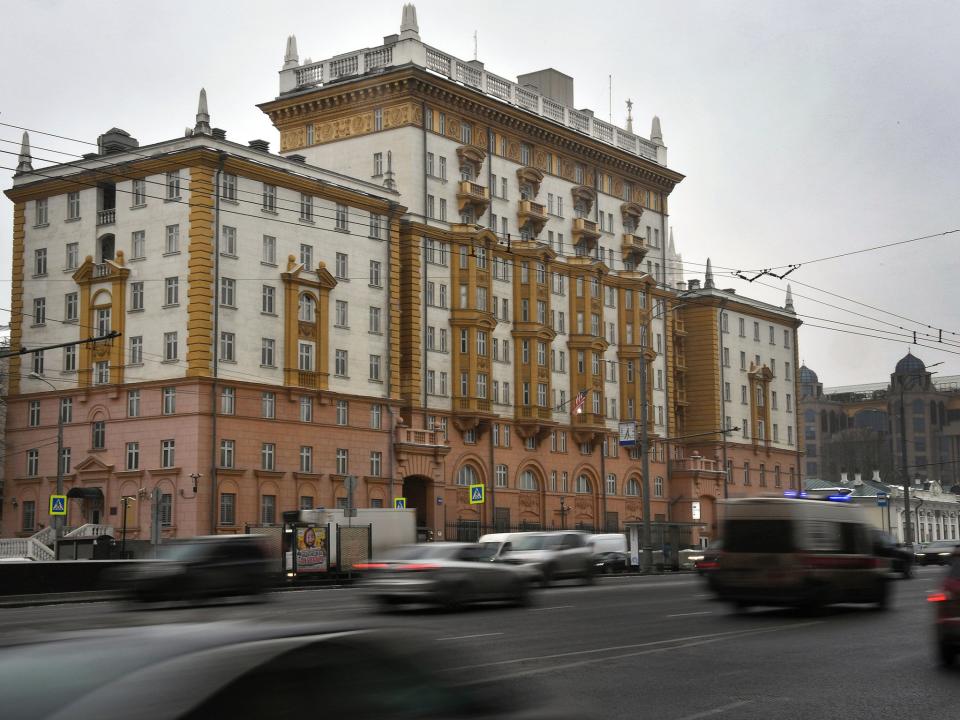Suspected Russian spy caught working at US embassy in Moscow for more than a decade
A suspected Russian spy was reportedly caught after working at the United States’ embassy in Moscow for over a decade.
The Russian woman had been hired by the US Secret Service and had access to the agency’s intranet and email systems before her clearance was reportedly revoked in the summer of 2017.
It would have potentially given her access to highly confidential material such as the schedules of the president and vice-president.
The woman came under suspicion in 2016, during a routine security review by the US State Department’s regional security office, The Guardian reports.
She was found to be having regular and unauthorised meetings with members of Russia’s security agency, the FSB.
A source told the paper “her frequent contacts with the FSB gave her away... numerous unsanctioned meetings and communications.”

The State Department’s resident agents alerted the Secret Service in January 2017, The Guardian was told, and at least nine high-ranking Secret Service officials were made aware of the findings.
The CIA and FBI were also conducting separate inquiries at the time, but the paper said the Secret Service failed to take the lead, allowing her to continue working until her security clearance was revoked shortly before the Kremlin demanded the expulsion of US embassy staff.
“The Secret Service is trying to hide the breach by firing [her],” the source continued.
“The damage was already done but the senior management of the Secret Service did not conduct any internal investigation to assess the damage and to see if [she] recruited any other employees to provide her with more information.
A senior administration official told CNN: “We figure that all of them are talking to the FSB, but she was giving them way more information than she should have.”
While the US Secret Service did not deny the woman was a Russian mole, it downplayed her access to sensitive information, saying all foreign service nationals (FSNs) who provide services “can be subjected to foreign intelligence influence.”
“In Russia we explicitly expect FSNs to be subject to the influence or control of Russian Intelligence Services. As such, all FSNs are managed accordingly to ensure that US Secret Service and United States Government (USG) interests are protected at all times.
“As a result, the duties are limited to translation, interpretation, cultural guidance, liaison and administrative support.”
However, the potential breach was not reported to Congress, which is investigating Russian interference in the 2016 US election.
A source told the paper: “A government committee needs to investigate the Secret Service for hiding this breach.
“The US Congress is focusing on Russian hackers when it is possible that all of the information they needed to get into the system came from the internal breach in the Secret Service.
“Her activities of stealing and sharing information could shed more light on how the Russians were able to hack the 2016 presidential election office of the DNC [Democratic National Committee].”
The Secret Service also said there was no correlation between the timing of the woman being fired and the closing of the Secret Service office in Moscow.
The agency added: “Reporting and/or questions regarding a potential security ‘breach’ of US Secret Service systems, information or reporting is unfounded as FSNs work on, and support, only projects with the intent of providing and/or sharing the information with the Russian government in furtherance of Secret Service and USG interests.
“Regarding a post-termination review and/or agency concerns regarding any reason for the termination, it should be noted that the US Secret Service is not an intelligence gathering agency and relies fully on the appropriate USG entities to pursue those avenues as determined appropriate.”

